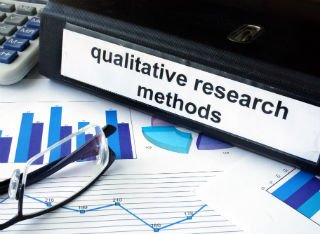
Dr Christina Silver
About
Biography
I graduated from Essex University in 1997 in Politics and Sociology, after which I came to Surrey and completed the Social Research Methods M.Sc. with distinction and obtained ESRC funded PhD comparing the development of school-based sex education in England and Wales and the Netherlands in 2002.
I've been working with the CAQDAS Networking Project (CNP) since 1998 and I now manage the project. The CNP provides platforms of debate concerning the use of Computer Assisted Qualitative Data AnalysiS (CAQDAS) packages. We train students and researchers in a number of CAQDAS packages, run an advisory telephone help-line, website, the 'qualitative software' electronic discussion list and develop and teach new courses. I also advise and train research teams on their use of CAQDAS software.
I have also been commissioned to carry out research projects for a number of independent organisations including a collaborative Action Research Project between East Sussex Hospitals NHS Trust, the Centre for the Development of Health Care Policy and Practice (CDNPP) at Leeds University and the Facilities Management Graduate Centre (FMGC) at Sheffield Hallam University.
Areas of specialism
University roles and responsibilities
- Manager of the CAQDAS Networking Project
ResearchResearch interests
I am interested in the relationship between qualitative/mixed methodology and technology - specifically the use of dedicated CAQDAS packages, and in CAQDAS pedagogy.
Research projects
This mixed-methods project was a collaboration between the University of Surrey, Southampton University, Birmingham University and the Mass Observation Archive.
There were 3 overarching objectives: 1) to combine underexploited longitudinal descriptive metadata and qualitative data on the 3,500 Mass Observation Project (MOP) volunteer writers who have contributed since 1981. 2) to contribute to the on-going debate on the ‘representativeness’ of Mass Observation writers, and provide evidence relating to how the writing of MOP volunteer writers can contribute to the study of British social attitudes and behaviours over a 30+ year period, and 3) to open up access to unexploited, descriptive metadata held by the Mass Observation Archive; enable the confident use, and sampling of MOP writing; and widen access to MOP writing as a source of longitudinal secondary data that can be used by different disciplines.
2015-2016. Co-Investigator. Economic and Social Research Council (ESRC) Grant.
Reusable Qualitative Learning Objects: Resources to support the learning of methods of qualitative data analysis in the social sciences (REQUALLO)The project produced five case study exemplars of data and explications of the analytic procedures from recent, real research projects. The exemplars each illustrate one of a range of approaches including grounded theory (the most popular approach), discourse analysis, action research and phenomenological and ethnographic methods. There are exemplars from education, business studies, and psychology and sociology.
2009-2011. Co-Investigator. National Teaching Fellowship Scheme, Higher Education Funding Council for England (HEFCE) (University of Huddersfield, Surrey University, Greenwich University).
The aims of this project were: i) To foster a working relationship with DReSS and MiMeG; ii) To explore the mapping of the intellectual processes involved in bringing together disparate sources of data, drawing on psychology, micro-sociology and cognitive perspectives in education; iii) To develop our expertise where the development of technology and methods for handling diverse data types outpaces our mainstream provision of training and awareness raising events; iv) To expand our expertise in the different potentials of team research projects and how they are managed; v) To begin the process of extending and expanding relevant and enduring QUIC node TCB resources.
2008. Co-Investigator. National Centre for Research Methods (NCRM) Fund for Collaborative Activities. (University of Nottingham, University of Bristol, Surrey University).
QUIC (“Qualitative Innovations in CAQDAS”) delivered core, well-established Training and Capacity Building programme in qualitative software and explored three breaking developments. The first concerns qualitative software support for integrating qualitative and quantitative data in mixed method research. The second relates to multi-stream visual data. Social science increasingly uses visual data, and a new technology called 'Access Grid' allows people at many locations to participate in 'virtual fieldwork' or teaching sessions convened by a host site. QUIC documented how to analyse AG multi-stream visual data using CAQDAS, and delivered training via AG. The third development concerns a technology many drivers have encountered, the GPS navigating system. Geo-referencing qualitative software enables users to add a spatial dimension to qualitative data analysis. QUIC explored the three new areas by applying them to the field of environmental risk. Two were tested in mini-research projects concerning social factors in response to natural environmental risk arising from climate change, and the third in social environmental risk arising from crime/disorder. QUIC derived exemplars, teaching datasets, and self-learning materials from each mini-research project and transfer these to its Training and Capacity Building programme.
Research interests
I am interested in the relationship between qualitative/mixed methodology and technology - specifically the use of dedicated CAQDAS packages, and in CAQDAS pedagogy.
Research projects
This mixed-methods project was a collaboration between the University of Surrey, Southampton University, Birmingham University and the Mass Observation Archive.
There were 3 overarching objectives: 1) to combine underexploited longitudinal descriptive metadata and qualitative data on the 3,500 Mass Observation Project (MOP) volunteer writers who have contributed since 1981. 2) to contribute to the on-going debate on the ‘representativeness’ of Mass Observation writers, and provide evidence relating to how the writing of MOP volunteer writers can contribute to the study of British social attitudes and behaviours over a 30+ year period, and 3) to open up access to unexploited, descriptive metadata held by the Mass Observation Archive; enable the confident use, and sampling of MOP writing; and widen access to MOP writing as a source of longitudinal secondary data that can be used by different disciplines.
2015-2016. Co-Investigator. Economic and Social Research Council (ESRC) Grant.
The project produced five case study exemplars of data and explications of the analytic procedures from recent, real research projects. The exemplars each illustrate one of a range of approaches including grounded theory (the most popular approach), discourse analysis, action research and phenomenological and ethnographic methods. There are exemplars from education, business studies, and psychology and sociology.
2009-2011. Co-Investigator. National Teaching Fellowship Scheme, Higher Education Funding Council for England (HEFCE) (University of Huddersfield, Surrey University, Greenwich University).
The aims of this project were: i) To foster a working relationship with DReSS and MiMeG; ii) To explore the mapping of the intellectual processes involved in bringing together disparate sources of data, drawing on psychology, micro-sociology and cognitive perspectives in education; iii) To develop our expertise where the development of technology and methods for handling diverse data types outpaces our mainstream provision of training and awareness raising events; iv) To expand our expertise in the different potentials of team research projects and how they are managed; v) To begin the process of extending and expanding relevant and enduring QUIC node TCB resources.
2008. Co-Investigator. National Centre for Research Methods (NCRM) Fund for Collaborative Activities. (University of Nottingham, University of Bristol, Surrey University).
QUIC (“Qualitative Innovations in CAQDAS”) delivered core, well-established Training and Capacity Building programme in qualitative software and explored three breaking developments. The first concerns qualitative software support for integrating qualitative and quantitative data in mixed method research. The second relates to multi-stream visual data. Social science increasingly uses visual data, and a new technology called 'Access Grid' allows people at many locations to participate in 'virtual fieldwork' or teaching sessions convened by a host site. QUIC documented how to analyse AG multi-stream visual data using CAQDAS, and delivered training via AG. The third development concerns a technology many drivers have encountered, the GPS navigating system. Geo-referencing qualitative software enables users to add a spatial dimension to qualitative data analysis. QUIC explored the three new areas by applying them to the field of environmental risk. Two were tested in mini-research projects concerning social factors in response to natural environmental risk arising from climate change, and the third in social environmental risk arising from crime/disorder. QUIC derived exemplars, teaching datasets, and self-learning materials from each mini-research project and transfer these to its Training and Capacity Building programme.
Publications
Highlights
Co-author of the Five-Level QDA(R) method - a CAQDAS pedagogy

